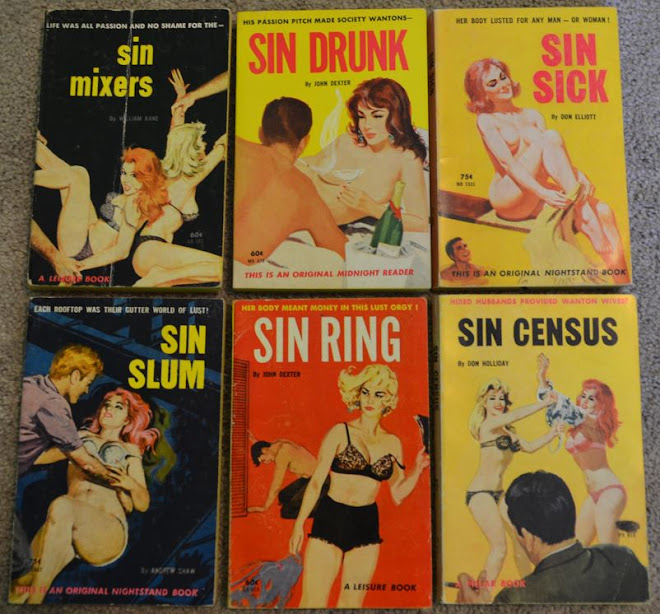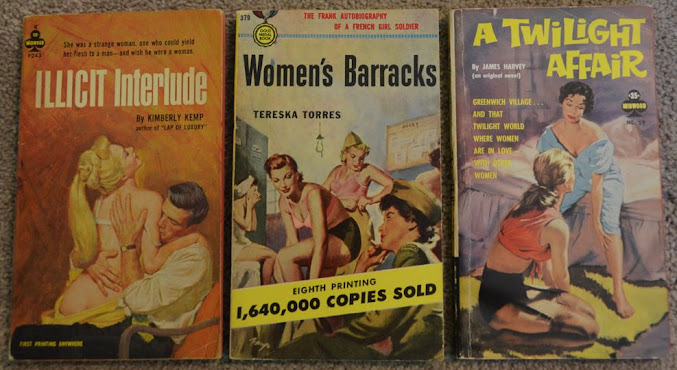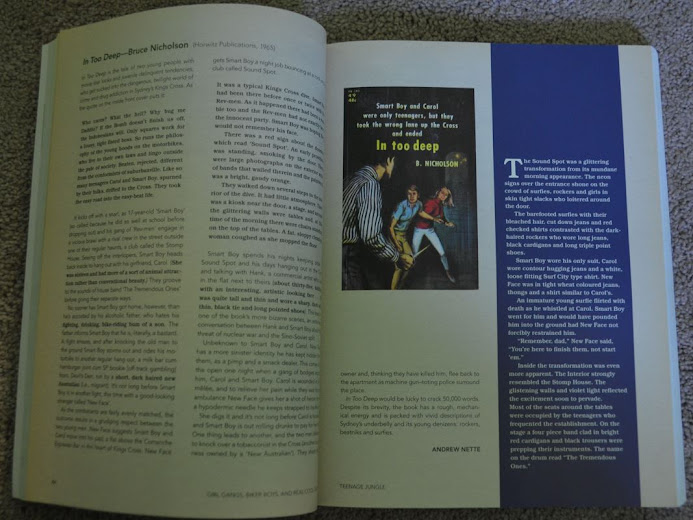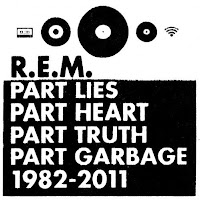By the time Jack Kerouac was 11 years old, he had invented a fantasy baseball game involving a toothpick and a marble. His invention evolved to a card-based game that he played for his entire life, inventing teams and rosters, keeping play-by-play box scores and seasonal statistics in a series of notebooks.
The teams were named after cars (St. Louis Cadillacs, Pittsburgh Plymouths, Washington Chryslers) or colors (Boston Grays, Chicago Blues, New York Greens). Kerouac wrote descriptions of games, trades, and contract disputes in league newsletters. He described one player, Buck Barbara of the Philadelphia Pontiacs as
big, stocky . . . and he swings toward his left, or turns on the ball, like a vicious bull; and when he connects, there is a sharp, hard crack, and those third basemen start hopping around. He almost drove Charley Fiskell, Boston's hot corner man, into a shambled heap in the last game with his sizzling drives through the grass.
Kerouac would bring the game with him on his cross-country drives.
Jack Kerouac: Windblown World contains excerpts from Kerouac's journals from 1947-1954. There is no mention of his baseball game hobby in these entries, but in 1948, as he was writing and revising The Town and the City, his first published novel, he often mentioned a "batting average" of his writing progress, which would go up or down depending on how his work was progressing.
The first entry in Windblown World that mentions a batting average is June 3, 1948. Kerouac, 26 years old in the summer of 1948, says the average is "an intricate mathematical thing" and "too complicated and mad to explain".
Thursday, June 3
Still sick as a dog but working. Did 24 pages today. I worked out an intricate mathematical thing which determines how assiduously I'm getting my novel typed and revised day after the day. It's too complicated and mad to explain, but suffice it to say that yesterday I was batting .246, and after today's work my "batting average" rose to .306. The point is, I've got to hit like a champion, I've got to catch up and stay with Ted Williams (currently hitting .392 in baseball).* If I can catch him, and stay with him, the month of June will be the final month of work on Town & City. But the absorbing thing is that I can't possibly bat that high (.392) without toiling like a fiend (and that's the whole point of my little game.) So it's .306 for now, and depend on it that I'll suffer a batting slump over the weekends, because the days themselves figure in the formula (30 days of June), and during the weeks I'll always fatten my figure. To stay over .300 is of course essential in the big leagues ... so I'm doing O.K. as of now, anyway ... (for an outfielder.)
(* Footnote from Windblown World's editor Douglas Brinkley: "Ted Williams would end up hitting .349 in 1948." After June 2, 1948, Williams's batting average was actually .384, not .392. And TSW finished the season at .369. not .349. I can perhaps give Kerouac a pass for recording the wrong average in his personal diary, but Brinkley and Viking's editors, factcheckers, and proofreaders have no excuse.)
Friday, June 4
Woke up with my .306 average. Worked hard, brought it up to .324.
Saturday, June 5
And today brought it up to the respectable figure of .345 . . .
Monday, June 14
I cleared a lot of business today – at the bank, etc., and called up my 'connections.' Then I fell back on the typing. My average is where it was when I unavoidably lost a week – at .345. I must, I must be successful. [Jack and his mother went to North Carolina because his sister became "gravely ill" after giving birth to a three-pound infant after only seven months of pregnancy. Both his sister and baby recovered.]
Tuesday, June 15
Last night's sweating, plodding work left me with a .340 average for today to match. This is nowhere near Ted Williams' current .398. I typed and revised – maintained a .327 mark – and went into town to bring Tony's coat.
Wednesday, June 16
I typed all day, revised carefully, and maintained a .343 average, climbing 16 points over yesterday. These figures don't imply the tremendous strain of keeping up and on that way. To reach .390, and to stay there, that's almost incredible now as I see how rough it is. There's grave doubt even that I can keep up a pace over .300.
Thursday, June 17
Went to bed, after irritating work with a faulty typewriter-hand, with a .350 average.
Friday, June 18
Worked all day, slugged my average up to. 353, the highest yet. Tomorrow is an official day off . . . I was irritated today because my manuscript is not as "good" as it should be, but this is an Olympian sense of perfection and not human. It would take me another year, maybe longer, to 'perfect' T & C, and that is senseless (It wouldn't be any better anyway, according to human workaday standards.) Allen Ginsberg insists I 'perfect' it, but he's a poet, and a verse-writer is like that.
Sunday, June 20
Went to Dodger game in Brooklyn with Tony, and then to a massive Italian dinner at his sister's house, and then home.
Thursday, June 24
Typed 30 pages today, using a new kind of self-discipline. That many pages each day, according to last week's batting average discipline, would give me a .600 average.
Monday, June 28
Hot disgusting day ... dead and pasty, no wind, nothing, misty, sullen, incredibly stupid. Started late, did 18 pages.
Wednesday, June 30
Another disguster, fourth in a row. Give me the cool fogs of Frisco. For the month of June I did approximately – well, with tonight's vast 40 pages, (!) I did, in all, about 320 pages in June ... for a batting average, according to early standards, of .291: – which is enough for the big leagues, but not great.
Thursday, July 1
I'm never satisfied with the progress of my work. I won't rest, I won't rest till it's complete complete ... and what a pain in the eye that is.
Wednesday, July 7
A beautiful cool, clear day. Got letters from Neal, Ed, Allen. . . . Went to the library, got books. Shook off the weekend's cobwebs. . . . Batting .315 anyway (over that .291.)
Monday, July 12
Did 27 pages ... batting .328. Working along in casual daze of sorts ... resting.
Tuesday, July 13
Did 19 pages and began totally revising the Francis-Engels chapter ... This great deadwood will ruin my .330 batting average. I now have well over 800 pages done on the ms., with some 200 more to go. And the novel will be done forever, and the devil can then shove it up.
Friday, July 16
These must be some of the worst days of my life, I don't know. I feel old and finished ... just working with the most alone sense I've ever had. . . . Also, lately, I feel like a newspaperman: – I've no brains. It's the most empty feeling in the world to feel like a newspaperman racking his head for words, the most superficially-meant words. Batting .309.
Monday, July 19
The nearer I get to the final end of the work, the more work there seems to be. My 1946 material is not generally worth the paper it's on. Wearing glasses now, my eyes seem perfect. . . . Now shot up bat. ave. to .327.
Tuesday, July 20
Did 22 pages, batting .330 again. . . . had a lot of happy, healthy feelings and thoughts for the first time in weeks, it seems.
Wednesday, July 21
Did 17 pages, batting .329 -- and I swear to God that I'll never be finished with this thing.
Tuesday, July 27
Wearied by ragged literary work in the heat ... did 34 pages, batting .329.
Saturday, July 31
Today I worked hard on those 22 pages and at night I couldn't see my way through the sea-chapter at all. Batting .331.
Friday, August 6
. . . a big night's work left me a nervous wreck. Batting .336 . . .
Thursday, August 12
Still beautifully cool – it's been so for 13 days now. Tonight did 23 pages, all carefully revised . . . Batting .345 . . .
Tuesday, August 17
Babe Ruth died yesterday, and I ask myself: "'Where is the foundling's father hidden?' – where is Babe Ruth's father?"* Who was it who spawned this Bunyan? – what man, where, what thoughts did he have? Nobody knows. And this is an American mystery, the foundling becomes the king, and the foundling's father is hidden ... and there's greatness in America that this does always happen.
(* Editor's footnote: "The search for Babe Ruth's father notion was later used, to great effect, in On the Road, the search for Dean Moriarty's (Neal Cassidy's) father.")
* * *
Specific Baseball Games Mentioned In Windblown World
Saturday, May 15, 1948: Athletics at Yankees
Kerouac writes: "went to a Yankee-Athletics game with Tony [Monacchio], rained out". However, those teams played a doubleheader on the 15th (Philadelphia won 3-1 and 8-6); Sunday's game (May 16) was washed out by rain after only an inning and a half.
Saturday, May 22, 1948: Giants 11, Cubs 0 (Polo Grounds)
"(Meanwhile I saw a ballgame, Giants-Cubs, at Polo Grounds with good Tony.)"
Sunday, June 20, 1948: Cubs 6, Dodgers 3 (Ebbets Field)
"Went to Dodger game in Brooklyn with Tony, and then to a massive Italian dinner at his sister's house, and then home."
Monday, May 3, 1949: Giants 11, Pirates 4 (Polo Grounds)
"Saw a ballgame at night in Polo Grounds – a big delightful spectacle, and good game. Slept at [John Clellon] Holmes' – talked, drank beer."
Wednesday, October 5, 1949:
Yankees 1, Dodgers 0 (Yankee Stadium)
"Heard great Newcombe-Reynolds pitching duel in 1st game of Series, on radio."





























